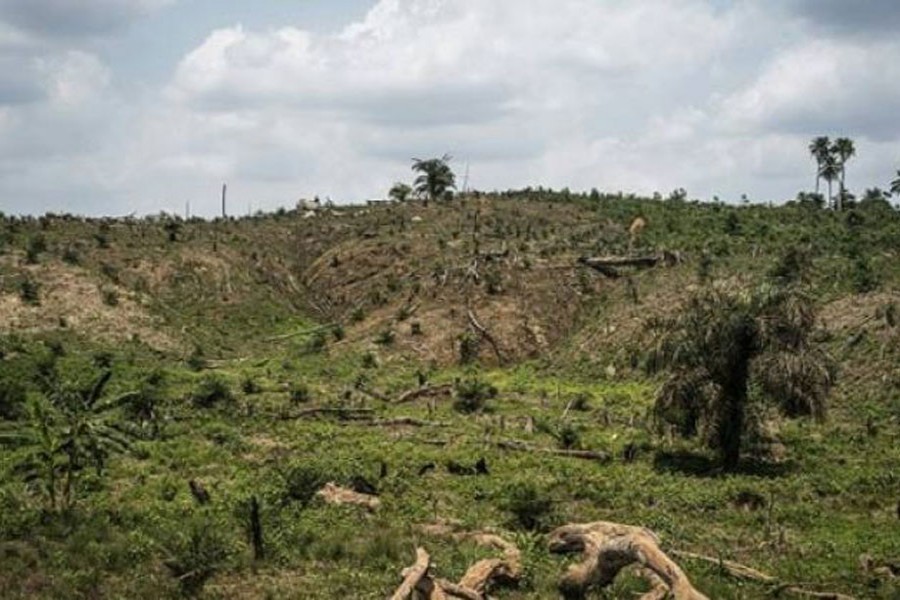The indiscriminate burning of firewood by Rohingya people in different parts of Cox’s Bazar could kick-start rapid deforestation in the coastal district – thereby putting its ecosystem at stake.
The environmentalists and local residents of Ukhia, Teknaf and Naikhangchhari expressed deep concern over the Rohingyas’ desperate search for firewood, which is virtually turning the naturally green and lush area into a grey and fade one.
Concerned people have asked the government to take appropriate measures before environmental disasters strike.
While visiting a number of temporary camps in Kutupalong and Balukhali of Ukhia and Teknaf, a UNB correspondent found that thousands of Rohingyas have been camping in the deep forests of Ukhia-Teknaf and Naikhangchhari belt.
They were even found to be building their tents in two to three kilometres deep into the forest from the Cox's Bazar-Teknaf Road and fetch their firewood from the deep and fresh forest, the correspondent found.
"This huge number of Rohingya is burning almost approximately 50 million kgs (estimated the figure) of firewood for cooking every day. They are mainly relying on the forest around the area of their camps. As a result, the forests are being destroyed every day," forest department officials told UNB.
Deputy Director of Environment Department of Cox's Bazar Saiful Arshad said. "There is no shortage of relief to Ukhia-Teknaf and Naikhangchhari Rohingya camps but there is a severe crisis of firewood which is going on as the number of the Rohingya people stands at 1.1 million (new and old entrants) and is increasing every day."
Jane Alam, a Rohingya living in the Balukhali camp, said "We cannot collect firewood due to rain earlier. Now we are collecting and burning firewood to the stove in the morning and evening which is being collected from the forest. There is no alternative to this cutting forest to collect firewood for cooking."
UNB also found that the trees and horticultural trees of the forest are burning in these stoves. Even they are regularly picking up the root of the trees which can cause mudslides.
Some children were busy with the cutting the root of the trees for their firewood, and many of them were collecting dry firewood from the deep forest.
'No Man's Land' of Tambru (Ghumdhum Boarder area), Boro Chhakhola Para of Naikhangchhari, Phultoli and Ashartoli all presented the same picture.
Cox's Bazar Divisional Forest Officer (South) Mohammad Ali Kabir said, "We have to think about the availability of firewood for the Rohingya people as nature will take its revenge."
Mentioning the tragic incident of three Rohingya deaths in an attack by wild elephants in the hills of Ukhia, DFO Kabir said, "Everyone will have to think about it. Efforts should be taken to restore the damage to the hills and forests. Some individuals and organisations have distributed some kerosene stoves as the relief. But it is a little less than the requirement," he added.
After his visit to the Kutupalong Rohingya camp in Cox's Bazar's Ukhiya Upazila on October 25, Environment and Forest Minister Anwar Hossain Manju ruled out the notion of environmental disaster and said, “1000 acres more land will be allocated if needed and some partial damage to the environment needed to be accepted and compromised for the sake of the Rohingya refugees."


